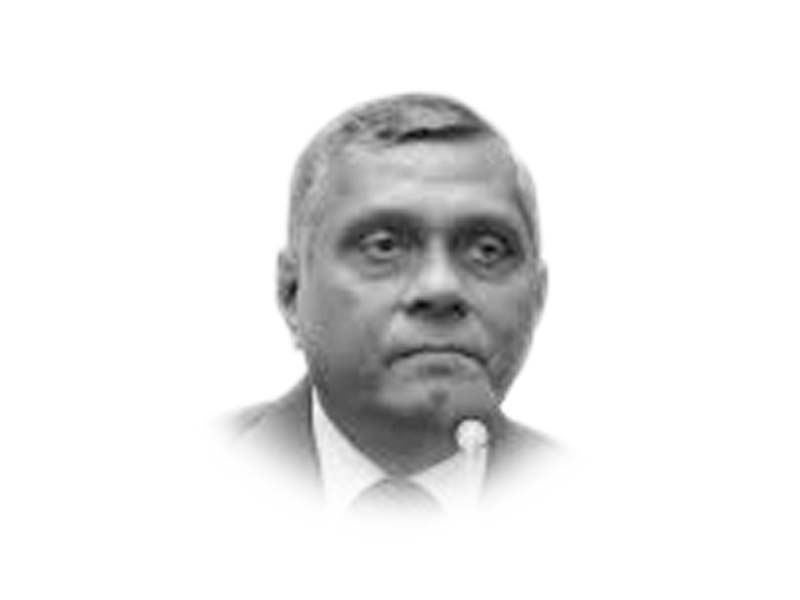
After more than five weeks of crackdown and communications blackout, voices of dissent are being raised by various human rights organisations and civil society groups in India. Aakar Patel, the head of Amnesty’s Indian chapter, launched a campaign to support the besieged Kashmiris. In a statement, he lamented, “The blackout has now been a month old and cannot be prolonged any further by the Indian government as it has grossly impacted the daily lives of Kashmiri people, their emotional and mental wellbeing, medical care, their access to basic necessities and emergency services. It is tearing families apart.”
“Let Kashmir speak” is the essence of the movement which has been launched in India and internationally to expose the atrocities of Indian security forces and the inhuman conditions faced by more than eight million Kashmiris. As was rightly said by Mr Patel, “Naya Kashmir cannot be built without the Kashmiris. The country is yet to hear from Kashmir after a month of being repeatedly told by the Indian government that all is normal. This is not normal.” If all is well in occupied Kashmir, then why is the Valley under curfew; telecommunication including internet and mobile phones have been blocked; TV channels are off-the air and local people have been prevented from getting necessary items like medical supplies. Worst is the excessive use of force to quell any voice raised by the Kashmiris against the Indian brutalities. India may be confident that it can suppress the voice of the Kashmiris for some time, but it must understand that it cannot continue forever.
As mentioned by Amnesty India’s statement, the draconian measures of the Indian state “deprive the entire population of Kashmir of their right to freedom of expression and opinion and access to crucial information, thus inflicting a form of collective punishment on the eight million people of Kashmir. Lack of transparency on the criteria used to cut off all communication services and what mechanisms are available to challenge the sweeping restrictions puts India in clear violation of its international obligations.” It is not only Arundhati Roy and other renowned Indian writers who have expressed their chagrin against India’s treatment of Kashmiris, but saner voices of students, teachers, political workers, and their leaders are also condemning the serious human rights violations.
On August 16, around 200 writers and political activists termed the act of India’s August 5 act a mockery of democracy. The signatories include Amitav Ghosh, Nayantara Sahgal, Perumal Murugan, Ashok Vajpeyi, TM Krishna, JV Pawar, Bezwada Wilson, Amit Chaudhuri, Shashi Deshpande, Sharankumar Limbale, P Sainath, Damodar Mauzo, Dalip Kaur Tiwana, Bama, Sambhaji Bhagat, and Jerry Pinto, working in different parts of India and elsewhere. In their statement, the writers and human rights activists lamented that “by revoking the special status of [occupied] J&K and splitting it up into two union territories, the central government has made a mockery of democracy. It has violated the solemn promises made to the state of Jammu & Kashmir by the Union”.
Furthermore, “the abrogation of Article 370 of the Constitution has been executed unilaterally and coercively. We condemn the government’s division of people and territories from above, subverting the very basis of our constitutional federalism. The people — across religious, cultural, ethnic and ideological segments — have not been consulted. Indeed, the unprecedented security and information clampdown in the state since August 5 is proof of the government’s fear of popular discontent and democratic dissent.”
Why is then — despite growing pressures on the Modi regime from inside and outside India against the unilateral acts of August 5 — the Indian government not on a back foot and is confident in continuing its repressive measures against the Kashmiri Muslims? One can figure two main reasons why New Delhi is intransigently sticking to its August 5 acts. First, the narrative held by BJP stalwarts that relaxation in the occupied state cannot be given unless the alleged cross-border interference stops. For instance, in his comments to NDTV, Ajit Doval, India’s National Security Adviser, stated, “Pakistan is trying to create a situation of instability so that it can take advantage and people can’t come out, and then it will say people themselves are observing civil curfew. Communication is very important but not at the cost of human lives. We cannot start mobile [connections] so that terrorists get the freedom to communicate. We would like to see all restrictions go, but it depends on how Pakistan behaves.”
Perhaps people like Doval think that time will pass, along with the tempo of the Kashmiri resistance against India, because neither the mainstream international media nor are the global players giving any serious thought and attention to the plight of the Muslims in occupied Kashmir.
Does this mean that India will continue to make Pakistan a scapegoat to justify its brutal measures against Kashmiri Muslims? It is New Delhi’s failure to lift punitive restrictions imposed in the Valley, which proves how vulnerable it is vis-a-vis an ordinary Kashmiri, but even then it is not relegating. That it wouldn’t like to risk lifting the curfew and opening the communication networks as it fears that millions of Kashmiris will come on the roads and express their hatred against India.
Second, India also knows the fact that it will be Pakistan’s last intention to allow Pakistani Kashmiris to cross the Line of Control (LoC).
Recently, the Jammu and Kashmir Liberation Front (JKLF) announced that on October 4 it would hold a peaceful demonstration against the Indian brutalities in the Valley and mobilise popular support to cross the LoC. The JKLF has also asked the government of Pakistan not to prevent its plan as that is the only way to stop India from embarking on genocide of Kashmiri Muslims. For Pakistan, crossing the LoC would mean provoking the Indian side, which would result in a sharp escalation of the conflict — something it wants to avoid at this time. It would be India’s utmost desire that the LoC is crossed, allowing Indian forces to retaliate. This would result in heavy casualties and India would blame Pakistan for acting irresponsibly by not stopping people from its side, thus violating the sanctity of the LoC.
Letting the Kashmiris speak and decide their own destiny is the need of the hour. If saner voices against New Delhi’s brutal crackdown in the Valley are raised in India today, a time will come when one can expect a major reversal of the Indian policy of neglect, indifference, and cruelty in occupied J&K.
Published in The Express Tribune, September 13th, 2019.
Like Opinion & Editorial on Facebook, follow @ETOpEd on Twitter to receive all updates on all our daily pieces.

1726739452-0/Express-Tribune-Web-(10)1726739452-0-165x106.webp)


1728386780-0/BeFunky-collage-(38)1728386780-0-165x106.webp)








COMMENTS
Comments are moderated and generally will be posted if they are on-topic and not abusive.
For more information, please see our Comments FAQ